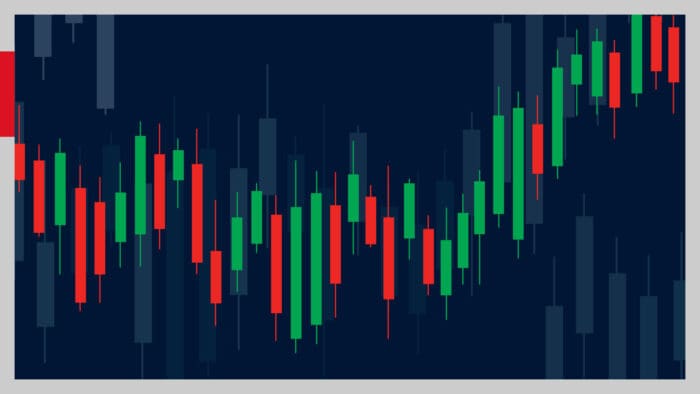Key takeaways
Market history
Markets, over more than 120 years, have experienced a long-term advance despite war, recession, oil shocks, political assassinations, and much more.
Military conflict
Military conflicts test investors’ resolve to stick to their investment plan, but history suggests these events haven’t derailed the long-term growth of markets.
Long-term focus
While unnerving, geopolitical conflicts shouldn’t change investors’ long-term investment plans, in my view.
History is composed of challenging times. As a global market strategist, my job is to talk about military conflicts and other historic events in the context of stock markets, and to offer some perspective for investors. With that in mind, it’s important to remember that, over more than 120 years, markets have experienced long-term growth despite war, recession, oil shocks, political assassinations, and much more.
While military conflicts test investors’ resolve to stick to their investment plan, history suggests these events have not derailed the long-term growth of financial markets. I implore investors to maintain a long-term perspective.
Stock market returns following geopolitical conflicts
If there’s a factor that impacts market performance, there’s an index to measure it. Geopolitical risk is no exception. The chart below illustrates 11 points in history where we experienced a peak in the Geopolitical Risk Index, and it shows the return of the S&P 500 Index 12 months after that peak. In most cases, the stock market rose significantly in the year following peak geopolitical risk.
Stocks have made significant returns in the 12 months following peak geopolitical risk

Three things for long-term investors to focus on
While military conflicts understandably generate concerns about the potential market impact, I believe long-term investors should focus on three questions:
1. What’s the outlook for the economy?
Ultimately, I believe investors should stay focused on the businesses that are going to harness innovations such as artificial intelligence and robotics, develop treatments for debilitating diseases, evolve the nation’s energy sources, and invent new technologies and industries that aren’t even on the radar. History suggests that innovations — and investment opportunities — will continue irrespective geopolitical difficulties.
2. What’s the expected path of Federal Reserve monetary policy?
For all the focus on geopolitics, I’d argue that monetary policy matters more. The old adage holds true: Don’t fight the Fed. Historically, the economy has been hurt or helped by monetary policy conditions.
3. Does this military conflict change the answer to either of those questions?
Typically, the answer is no, so long as the conflict remains contained or regional. And that can run counter to what some investors might expect. Consider this example: The MSCI Poland Index has been one of the world’s best-performing indices since Russia invaded Ukraine, climbing 54.15% from the day of the invasion on Feb. 24, 2022, through May 2024.1 That’s not an outcome many investors might have expected in the earlier days of the conflict.
Stick to long-term investing plans
While unnerving, geopolitical conflicts shouldn’t change investors’ long-term investment plans, in my view. History has shown that other factors — economic growth, business innovation, and monetary policy — drive the path of the markets.
—
Originally Posted June 28, 2024
Military conflicts haven’t derailed long-term stock growth by Invesco US
Footnotes
- Source: Bloomberg L.P., as of May 31, 2024. Results measured in US dollars. Indexes cannot be purchased directly by investors. Past performance is not a guarantee of future results. The MSCI Poland Index is designed to measure the performance of the large and mid cap segments of the Polish market.
Important information
NA3668903
Investors should consult a financial professional before making any investment decisions. This does not constitute a recommendation of any investment strategy or product for a particular investor. Investors should consult a financial professional before making any investment decisions.
All investing involves risk, including the risk of loss.
Past performance does not guarantee future results.
Investments cannot be made directly in an index.
In general, stock values fluctuate, sometimes widely, in response to activities specific to the company as well as general market, economic and political conditions.
The Consumer Price Index (CPI) measures change in consumer prices as determined by the US Bureau of Labor Statistics. Core CPI excludes food and energy prices while headline CPI includes them.
The S&P 500® Index is a market-capitalization-weighted index of the 500 largest domestic US stocks. The S&P 500 Total Return Index assumes that all cash distributions are reinvested.
The opinions referenced above are those of the author as of June 28, 2024. These comments should not be construed as recommendations, but as an illustration of broader themes. Forward-looking statements are not guarantees of future results. They involve risks, uncertainties and assumptions; there can be no assurance that actual results will not differ materially from expectations.
Join The Conversation
If you have a general question, it may already be covered in our FAQs. If you have an account-specific question or concern, please reach out to Client Services.
Leave a Reply
Disclosure: Invesco US
This does not constitute a recommendation of any investment strategy or product for a particular investor. Investors should consult a financial advisor/financial consultant before making any investment decisions. Invesco does not provide tax advice. The tax information contained herein is general and is not exhaustive by nature. Federal and state tax laws are complex and constantly changing. Investors should always consult their own legal or tax professional for information concerning their individual situation. The opinions expressed are those of the authors, are based on current market conditions and are subject to change without notice. These opinions may differ from those of other Invesco investment professionals.
NOT FDIC INSURED
MAY LOSE VALUE
NO BANK GUARANTEE
All data provided by Invesco unless otherwise noted.
Invesco Distributors, Inc. is the US distributor for Invesco Ltd.’s Retail Products and Collective Trust Funds. Institutional Separate Accounts and Separately Managed Accounts are offered by affiliated investment advisers, which provide investment advisory services and do not sell securities. These firms, like Invesco Distributors, Inc., are indirect, wholly owned subsidiaries of Invesco Ltd.
©2024 Invesco Ltd. All rights reserved.
Disclosure: Interactive Brokers
Information posted on IBKR Campus that is provided by third-parties does NOT constitute a recommendation that you should contract for the services of that third party. Third-party participants who contribute to IBKR Campus are independent of Interactive Brokers and Interactive Brokers does not make any representations or warranties concerning the services offered, their past or future performance, or the accuracy of the information provided by the third party. Past performance is no guarantee of future results.
This material is from Invesco US and is being posted with its permission. The views expressed in this material are solely those of the author and/or Invesco US and Interactive Brokers is not endorsing or recommending any investment or trading discussed in the material. This material is not and should not be construed as an offer to buy or sell any security. It should not be construed as research or investment advice or a recommendation to buy, sell or hold any security or commodity. This material does not and is not intended to take into account the particular financial conditions, investment objectives or requirements of individual customers. Before acting on this material, you should consider whether it is suitable for your particular circumstances and, as necessary, seek professional advice.

















muy buen punto de vista y muy buena informacion gracias gracias.
¡Esperamos que siga disfrutando de Traders’ Insight!